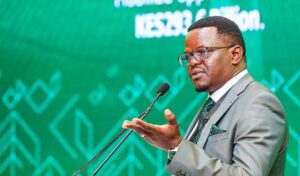Categories of Vehicles Exempted From Paying Tolls On Rironi-Nakuru- Mau Summit Highway
Share
The National Treasury, through the Directorate of Public Private Partnerships (PPP), has issued a detailed statement clarifying the implementation, governance, and tolling framework of the Rironi-Nakuru-Mau Summit Highway Project.
The statement, released on Sunday, 26th October, sought to address rising public interest and assure Kenyans of transparency, ownership, and fairness in the project’s rollout.
According to the Treasury, the highway, which is part of Kenya’s Northern Corridor, is being developed through a Public Private Partnership model to leverage private investment while maintaining government ownership.
“The Rironi-Nakuru-Mau Summit Highway remains a public asset wholly owned by the Government of Kenya,” the statement read.
The Treasury stated that Kenya’s fiscal position necessitates exploring alternative financing models to deliver major road infrastructure.
“Relying solely on taxes and sovereign borrowing to finance large capital projects is no longer sustainable,” it noted, citing budget constraints, debt-servicing pressures, and a Ksh4 trillion funding need in the road sector over the next decade.
Under the PPP model, the private partner will design, finance, build, operate, and maintain the highway for a 30-year concession period before transferring operations back to the government.
The Treasury added that this approach “preserves fiscal stability and ensures that financing and construction risks rest with the private sector, not the taxpayer.”
While the highway will be tolled, the government shows that certain vehicles will be exempted from paying.
Exemptions or preferential rates will apply to “specific vehicle categories such as ambulances, military and police vehicles, and local traffic for residents along tolled corridors,” according to the Treasury.
Also Read: KeNHA Reveals Firms Selected to Build Ksh200 Billion Expressway Project
Public Ownership, Oversight, and Regional Equity
The Treasury reiterated that the land and related assets “remain vested in the Republic of Kenya throughout the concession.”
Oversight responsibilities will be shared among the National Treasury, the State Department for Roads, and the Kenya National Highways Authority (KeNHA).
It further noted that the project is part of a balanced national pipeline that ensures equitable infrastructure development across all regions.
“No region has been singled out for disadvantage,” the PPP Directorate assured, highlighting ongoing feasibility studies for similar corridors in the Rift Valley, Western, and Coastal regions.
The statement also clarified that the project follows a toll-based financing model that shields taxpayers from long-term fiscal exposure.
Unlike previous models requiring government repayment commitments, the new structure “places financing and operational risk on the investor, ensuring value for money.”
National Tolling Policy 2025 to Guide Implementation
The tolling process will follow the National Tolling Policy 2025, which seeks to establish a “transparent and equitable framework for financing and maintaining high-capacity highways.”
Under this policy, toll revenues will be reinvested in the same corridor to fund maintenance, patrols, lighting, and emergency response.
The Treasury explained that toll rates will be “regulated, reviewed periodically, and adjusted transparently,” ensuring affordability and accountability.
A revenue-sharing mechanism will prevent private concessionaires from earning excessive profits, with surplus revenues redirected to national infrastructure priorities.
For motorists, tolling will come with benefits such as shorter travel times, reduced vehicle operating costs, and guaranteed road safety.
The Treasury highlighted that “private operators are bound by measurable maintenance standards enforced by government,” ensuring consistent service quality.
Also Read: Kenya-Uganda Expressway Declared Feasible and Ready for Investment
Transparency and Public Accountability
The Treasury clarified that the PPP Committee has not yet approved the final award for the project but has authorized KeNHA to negotiate with the preferred bidder.
It pledged that “detailed information on the agreed positions will be publicly disclosed in accordance with the PPP Act.”
The Directorate further stated that the corridor carries nearly 40 percent of Kenya’s trade traffic, making its modernization vital for economic growth and safety.
“Every kilometre remains under the jurisdiction and ownership of the Republic of Kenya,” the statement stressed, dispelling fears of foreign takeover.
The Treasury concluded by reaffirming Kenya’s commitment to sustainable and transparent infrastructure partnerships.
“This project exemplifies Kenya’s commitment to fiscally disciplined development that protects public resources,” it said.
Citizens were encouraged to seek verified information from the official PPP portal: www.pppkenya.go.ke.
Follow our WhatsApp Channel and WhatsApp Community for instant news updates

PPP Director-General Eng. Kefa Seda. PHOTO/ Kefa Seda, Facebook.
